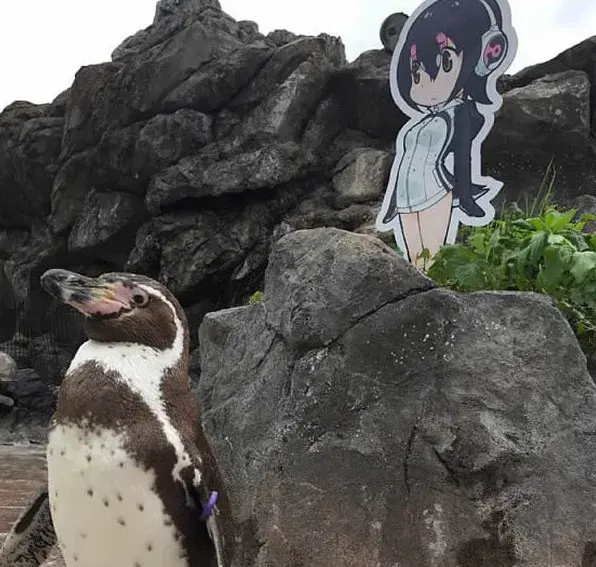
Just built my first fully dedicated Linux machine. Still keeping my old Windows desktop around purely because I play League of Legends and they use a kernel level anticheat, so it won't run on VM.
Fun fact, ever since Riot made it mandatory to install their rootkit if you want to play their games, every time I try to eject a flash drive, it says it can't eject because it's in use - even if I just plugged it in. And that's super comforting.
Ah, so that's where screws come from. TIL!
Respectfully, I disagree. We've entered an AI boom, and right now, the star of the show is in a bit of a gangly awkward teenage phase. But already, these large data models are eating up mountains of energy. We'll certainly make the technology more energy efficient, but we're also going to rely on it more and more as it gets better. Any efficiency gains will be eaten up by AI models many times more complex and numerous than what we have now.
As climate change warms the globe, we're all going to be running our air conditioning more, and nowhere will that be more true than the server centers where we centralize AI. To combat climate change, we may figure out ways of stripping carbon from the air and this will require energy too.
Solar is good. It's meeting much of our need. Wind and hydroelectric fill gaps when solar isn't enough. We have some battery infrastructure for night time and we'll get better at that too. But there will come a point where we reach saturation of available land space.
If we can supplement our energy supply with a technology that requires a relatively small footprint (when it comes to powering a Metropolitan area), can theoretically produce a ton of power, requires resources that are plentiful on Earth like deuterium, and doesn't produce a toxic byproduct, I think we should do everything in our power to make this technology feasible. But I can certainly agree that we should try to get our needs completely met with other renewables in the meantime.
Funny enough, the original Greek meaning of "idiot" was not a dumb person, but a "private" person who keeps to themselves and refuses to take part in politics. So, this usage is correct.
I hate when people save their music in a lossy format.
Entomologist

My mom left some plain potato chips at my place shortly after I moved in. I wasn't going to eat them, so every few days, when I saw some crows sitting on the telephone line in the backyard, I'd leave a chip or two so they'd like me. But I knew it wasn't healthy for them so when the bag ran out, I got some raw unsalted cashews and started leaving those instead. The crows stopped coming to my backyard almost immediately. I know the nuts and seeds are healthier, but I think they only wanted the tasty food with no nutritional content. Same, crows. Same.
If you want a vacation, don't insurrect the nation.
This is not fair. She hardly even has sleeves.
This week's episode is actually really good. You just have to watch the other 1071 episodes first and I swear you'll like it.
All of these things are bad, but the effect on phytoplankton is most frightening of all. Diatoms provide 50-85% of our global oxygen supply. Not only are rising temperatures a problem for them, but ocean acidification also eats away at their silica-based shells. But it does it slowly so by the time they die, they are in deep water where no other diatoms are around to reuse the silica.
Luckily, there are other ways of recycling diatom remains. The most notable example is the dried lake bed that used to be part of Lake Chad when that lake was far bigger and held many living diatoms. Due to natural changes in climate, the water dried up and that area is now part of the Sahara Desert. About 100 days a year, winds kick the ancient diatom dust high into the atmosphere where it is carried across the Atlantic Ocean and then it settles across South America.
This is a big reason the Amazon Rainforest is so lush. Diatomaceous fertilizer carried all the way from Africa. And since more plants means more photosynthesis, it causes a lot of water that would have otherwise been locked away in the ground to evaporate through transpiration. All of this excess water is blown westward towards the Andes mountain range. In narrower parts of the Andes, the dense Amazonian clouds overcome the rain shadow effect to precipitate across the west side of the Andes.
This rainwater causes erosion of quartz, which is ground into fine silica dust. As silt, this dust is washed into the Pacific Ocean, where diatoms absorb the silica and use it to reproduce. In a beautiful global balancing act, as diatom-heavy lakes in Africa dry up, the remains of those diatoms cause a chain reaction that ends up causing a huge increase of diatoms on the opposite side of the globe.
Great, right? It would be if we weren't replacing so much of the Amazon Rainforest with monoculture farms which don't have nearly the same evapotranspiration effect as the flora of the natural ecosystem. So, not only are we baking the diatoms, not only are we dissolving them with acid, we're also removing one of their most critical reproductive resources.
It's like we discovered how resilient the planet is and how hard it is to kill, and humans took that as a challenge.
Enjoy the oxygen while it's plentiful.